Scientific Memberships
Francesco De Giorgio is member at the Ethics Committee of International Society for Applied Ethology (ISAE) and member in a number of other International Societies about Science and Society.
Francesco De Giorgio is an italian ethologist and applied behaviour researcher, currently living in the Netherlands and working both in Italy as in the Netherlands. He is Guest Lecturer of Equine Cognition in several universities and his special field of research is applied social learning in horses. He is a scientist but also a practical man, having a band of eight horses with his partner in life and work José Maria Schoorl.
Francesco De Giorgio studied Biological Science at Parma University. His thesis was a research about intraspecific perception and aggression in mus musculus, with prof. Danilo Mainardi and prof. Stefano Parmigiani as supervisors. After completing his studies in 1989, he collaborate with Siena University during a field research on fox, badger,porcupine and marten, with prof. Sandro Lovari as supervisor. Meanwhile he works as free professional in equine learning, supporting owners in their relationship with horses. From 2005 his scientific career continuous at the equine ethology group at Pisa University, in collaboration in relevant research in equine cognition. Leading to various published and presented studies. In March 2012 during 2nd IESM at Regensburg University, he presents his own appreciated field study about applied equine social learning.
“Francesco gave, I assure you, the best, not only in the study but also with the acquisition of practical knowledge, and during its cultural development was able to travel, explore and choose many excellent teachers, working with the head but also working with the heart and the hands. Becoming the complete scientist that demonstrates now, with his work, to be.” – Danilo Mainardi, Director of the International School of Ethology of Venice, in his introduction to the first book wrote by Francesco De Giorgio.
Pubblications
Baragli P., Mariti C., De Giorgio F., Petri L., Sighieri C., 2011. Does attention make the difference? Horses’ response to human stimulus after 2 different training strategies. Journal of Veterinary Behavior
Baragli P., De Giorgio F., Mariti C., Martelli F., Sighieri C., 2007. Practical consideration on stimuli modulation using a “round pen technique” for horse training. VII Italian Veterinary Physiology Conference.
Baragli P., Mariti C., De Giorgio F., Basile C., Sighieri C., 2006. Assessment of the behaviour and haltering work time in young unhandled horses: influence of three different training methods. Proceedings of the 2nd International Equitation Science Symposium.
Baragli P., Mariti C., De Giorgio F., Sighieri C., 2008. Stimulus` perception in horses: Using Heart Rate (HR) as an appropriate indicator. Proceedings of the 4th International Conference of the International Society for Equitation Science.
De Giorgio F., Schoorl J., 2012. Why isolate during training? Social learning and social cognition applied as training approach for young horses (Equus caballus). Proceedings International Equine Science Meeting
De Giorgio F., Schoorl J., Saviani G., Palandri L., Tonarelli E. 2012. Equine social cognition; differences in the social exploratory process comparing free-roaming and domestic horses. Proceedings Winter Meeting “Cognition in the Wild”, Association for the Study of Animal Behaviour
Mariti C. , Baragli P. , De Giorgio F., Gazzano A., Basile C., Sighieri C. 2007. Influence of training methods on horse behaviour. VII Italian Veterinary Physiology Conference.
Scientific and Divulgative Bibliography
Aureli, F., De Waal, F., 2000. Natural Conflict Resolution. Berkeley: University of California Press
Baer, K.L., Potter, G.D., Friend, T.H., Beaver, B.V., 1983. Observation effects on learning in horses. Applied Animal Ethology 11, 123-129.
Baker, A.E.M., Crawford, B.H., 1986. Observational learning in horses. Applied Animal Behaviour Science 15, 7-13.
Bekoff, M., 1978. Social play: structure, function and the evolution of a cooperative social behaviour Garland
Bekoff, M., 1995. Cognitive ethology, vigilance, information gathering, and
representation: Who might know what and why? Behav. Process. 35, 225–237.
Bekoff, M., Allen, C., 1997. Species of Mind: The Philosophy and Biology of Cognitive Ethology. MIT Press
Clarke, J.V., Nicol, C.J., Jones, R., McGreevy, P.D., 1996. Effects of observational learning on food selection in horses. Appl. Anim. Behav. Sci. 50, 177-184.
Clutton-Brock, J., 1981. Domesticated animals, from early times. London: Britisch Museum of Natural History.
Darwin, C., 1872. The expression of the Emotions in Man and Animals. John Murray, London
De Giorgio, F., 2010. Dizionario bilingue Italiano/Cavallo – Cavallo/Italiano. Sonda Editore
Devenport, J.A. Patterson, M.R., Devenport, L.D., 2005. Dynamic averaging and foraging decisions in horses (Equus caballus). J. Comp. Psychol.
119, 352-358.
De Waal, F., 2001. De aap en de sushiumeester. Olympus
Galef , B.G., 1988. Imitation in animals: history, definition and interpretation of data from the psychological laboratory. In Zentall T.R. and Galef B.G. (Eds.), Social Learning: Psychological and Biological Perspectives. pp. 3-28. Erlbaum, Hillsdale, N. J.
Gould, S.J., 1989. Wonderful life. The Burgess Shale and The Nature of History. W.W. Norton
Hausberger, M., Roche H., Henry S., Visser E.K., 2008. A review of the human-horse relationship. Applied Animal Behaviour Science 109, 1-24.
Hare, B., Call, J., Agnetta, B., Tomasello, M., 2000. Chimpanzees know what conspecifics do and do not see. Animal Behaviour 59, 771-758.
Hare, B., Call, J., Tomasello, M., 2001. Do chimpanzees know what conspecifics know? Animal Behaviour 61, 139-151.
Heyes, C.M., 1994. Social learning in animals: categories and mechanisms. Biol.Rev. 69, 207-231.
Heitor, F., Oom, M.M., Vicente, L., 2006a. Social relationships in a herd of Sorraia horses. Part I. Correlates of social dominance and contexts of aggression. Behav. Process. 73, 170–177.
Heitor, F., Oom, M.M., Vicente, L., 2006b. Social relationships in a herd of Sorraia horses. Part II. Factors affecting affiliative relationships and sexual behaviours. Behav. Process. 73, 231–239.
Kiley-Worthington, M., 1997. Cooperation & Competition – A Detailed Study of Communication and Social Organisation in a Small Group of Horses at Pasture. Eco Research Centre Pub. 21
Kiley-Worthington, M., 2011. A comparative study of equine and elephant mental attributes leading to an acceptance of their subjectivity and consciousness. Journal of Counsciouness, vol. 2, num. 1
Krueger, K., 2006. Behaviour of horses in the ”Round pen technique”. Appl. Anim. Behav. Sci. in press.
Laland, N.K., 2004. Social learning strategies. Learning & Behavior, 32 (1), 4-14
Manning, A., 1996. On the origins of behaviour. New Scientist
Marchesini, R., 2005. Fondamenti di Zooantropologia. Alberto Perdisa Editore
Murphy, J., Arkins, S., 2006. Equine Learning Behaviour. Behavioural Processes in press.
Nicol, C.J., 1996. Farm animal cognition. Journal of Animal Sience 62, 375-391.
Nicol, C J., 2002. Equine learning: progress and suggestions for future research. Appl. Anim. Behav. Sci. 78, 193-208.
Reed, P., Skiera , F., Adams, L., Heyes, C.M., 1996. Effects of Isolation Rearing and Mirror Exposure on Social and Asocial Discrimination Performance.
Learning and Motivation 27, 113–129.
Rivera, E., Benjamin, S., Nielsen, B., Shelle, J. & Zanella, A. J. 2002. Behavioral and physiological responses of horses to initial training: the comparison between pastured versus stalled horses. Appl. Anim. Behav. Sci. 78, 235-252.
Shepard, P., 1995. The Others: How Animals Made Us Human. Island Press
Shettleworth, S.J., 2001. Animal cognition and animal behaviour. Anim. Behav. 61, 277–286.
Sondergaard, E., Ladewig, J., 2004. Group housing exerts a positive effect on the behaviour of young horses during training. Appl. Anim. Behav. Sci. 87, 105-118.
Waran, N., Casey, R., 2005. Horse training in the domestic horse: the origins, development and management of its behaviour. Cambridge: D.S. Mills and S.M. Mc Donnell (Ed.), Cambridge University Press, pp. 184-195

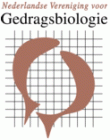
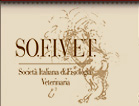
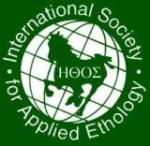
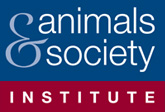
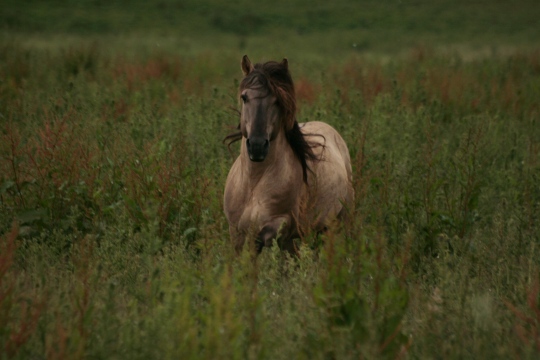

Leave a comment